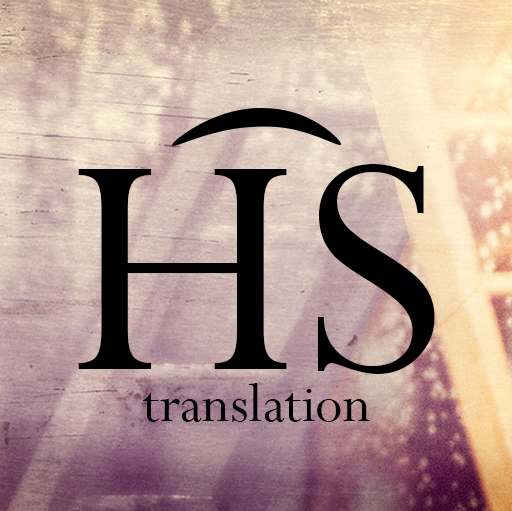The Translator’s Guilt
by May Huang

Guilt has been an unshakeable companion throughout my entire journey as a translator.
In March, Eric Yip became the youngest-ever winner of the National Poetry Competition for “Fricatives,” a coming-of-age poem that has resonated with many Hongkongers around the world since, myself included.
I found out about Eric’s win via a Guardian article, which begins by introducing the poem. “’Fricatives’ plays with ideas about language,” writes Sarah Shaffi, “to also comment on colonialism, race, migration, belonging and the guilt of leaving one’s home behind.”
Instinctively, I found my eyes drawn towards one glaring word: guilt.
Closer to the end of the piece, guilt comes up again, this time in Eric’s own words: “You almost feel a little bit guilty,” Eric says about his writing process, “because when you’re writing in English and when you write about Hong Kong, your home, your own culture, you’re actively engaging in translation. That’s something I’m very conscious about and it’s one of the themes I wanted to explore.”
“Translator’s Guilt” is a topic I’ve been wanting to explore for a long time, and Eric helped me find the words for it.
As a translator from Hong Kong who now lives in the US and works in English, I know all too well the guilt Eric describes. “There’s definitely an element of survivor guilt in the poem,” Eric says in response to his win. “Hong Kong is experiencing its largest emigration wave in history, but not everyone has the means to move to another country. For me, being able to write this poem is a form of privilege.”
For me, being able to translate into English is privilege, too. I left Hong Kong in 2015 to study English literature in the US and wasn’t back home during some of the most tumultuous, heartbreaking years in Hong Kong history. When protests around the Anti-Extradition Law were erupting, I was graduating from college in Chicago. When COVID-19 first broke out in Hong Kong, I remained ensconced in the States, while my mother told me repeatedly not to come home. I was reading and translating Hong Kong poetry at the time, and even translated a couple poems about the protests and the pandemic. But none of this absolved me from the guilt I felt about being away from Hong Kong. Sometimes, when I open the weather app on my phone, the widget shows me Hong Kong weather by default. I know it’s Hong Kong at once, because the app always shows rain. I’m reminded me of a passage from Jhumpa Lahiri’s Whereabouts, in which a young lady informs the protagonist, “it’s raining a lot in your city.” She replies, “it’s not my city anymore.”

When Eric says he feels a bit guilty about “engaging in translation,” he’s describing two different kinds of translation: the translation that is moving from Chinese into English, and the translation that is his own moving from Hong Kong to England. As a poet-translator, Eric migrates syntax and semantics. As a Hongkonger, he migrates himself.
Both translation and travel involve some form of departure, and guilt tags along, shaping how we feel about what gets left behind—not lost—in translation. In a way, I wonder if guilt comes naturally to translators; we always worry about what we might misinterpret, what we might get wrong, and what we might have already gotten wrong. How many of us feel responsible, and even liable?
Guilt has been an unshakeable companion throughout my entire journey as a translator. I’m always finding something to feel guilty about, my husband says, even when I’ve done nothing wrong, but I can’t help it: guilty of not spending enough time on translation; guilty of spending too much time on translation and not some other lucrative profession; guilty of forgetting my Cantonese; guilty of not having a book published, and possibly letting down my writers; and sometimes the greatest guilt of all, guilty of translating from Chinese into English, and never the other way around.
I ask a few translator friends how guilt factors into their translation practice, and they all have slightly different responses. When someone tells me they feel guilty, too, my gut-reaction is—but you shouldn’t!—something that we’ve no doubt heard from others who care about us, in the translation world and elsewhere. Yet somehow, that’s always the hardest thing to tell ourselves.
While aimlessly Googling guilt, I stumble upon something unexpectedly comforting: the Chinese-language Wikipedia page for guilt. The English one is very long, and divided into several sections: psychology, collective guilt, comparison with shame, “in the Christian Bible,” etc. The Chinese one (內疚), by contrast, is only two sentences long. At the very top of the page is a reminder: 此條目的主題不是後悔. “This article is not about regret.”
“Fricatives” is a poem that moves forwards and onwards, with future tense and imperative mood guiding most of the text (“you will,” “you must”). Even as the speaker mourns the past (“the television replays yesterday on repeat”), one gets the sense there’s no time for regret, entwined as it may be with guilt.
In time, perhaps the grip of my own guilt will be loosened by the slow, iterative rhythms of moving between languages. But until then, I hope to continue translating the way I have been since the start: with care and stubborn persistence, with no time for remorse.

May Huang (黃鴻霙) is a writer and translator from Hong Kong and Taiwan. Her work has appeared in Circumference, Electric Literature, Words Without Borders, Asymptote, and elsewhere. She graduated from the University of Chicago with honors in English and Comparative Literature in 2019. You can follow her on Twitter as @mayhuangwrites.
Originally published on Hopscotch Translation
Tuesday, May 24, 2022

